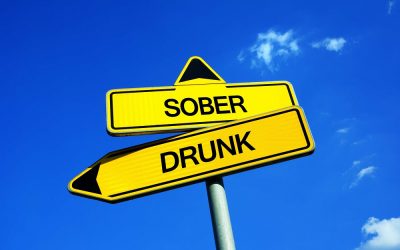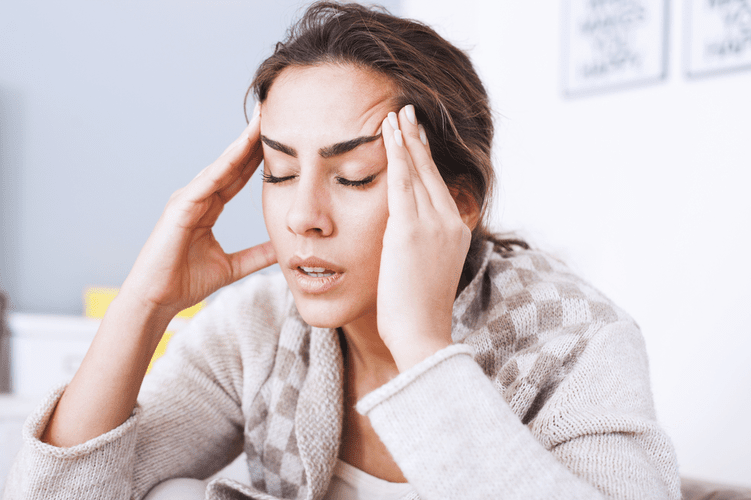Contents
Please seek professional care if you believe you may have a condition. Minimize sugar in your diet.Nutrition is a neglected pillar of recovery. Every time you eat a high-sugar meal or snack, you put your body on a blood sugar roller coaster that affects your mood. To learn more, check out my article on alcoholism and hypoglycemia. If all else fails and inpatient rehabilitation is not an option, you may be able to obtain medications for alcohol withdrawal from your doctor. These medications will stimulate your GABA receptors and/or reduce glutamate levels, which can help you sleep.

When I tucked into bed on the first night of my first Dry January last year, I waited — and waited — for the blissful sleep so treasured by alcohol abstainers to descend. Many people do Dry January for well-known benefits, such as improved sleep, skin, and mood. Alyssa who is the National Director of Digital Marketing, https://en.forexrobotron.info/ joined the Banyan team in 2016, bringing her five-plus years of experience. She has produced a multitude of integrated campaigns and events in the behavioral health and addictions field. Through strategic marketing campaign concepts, Alyssa has established Banyan as an industry leader and a national household name.
When you share your thoughts, you no longer need to hold on to them in your mind. Further, lack of sleep can impact your digestive system, lead to anxiety and depression, and can impair your immune system. Another cause, as you may be dealing with now, is quitting alcohol. By week three without alcohol, your body will start to heal itself in a much deeper way.
How Long Does Insomnia Last After Quitting Alcohol?
Abstaining from alcohol for even a short time can have incredible benefits. From better quality sleep to improved complexion to better finances, going three weeks without alcohol can make a big difference in your overall well-being. Sleep apnea is a disorder characterized by abnormal breathing and temporary loss of breath during sleep.

It is our mission at Encore Outpatient Services to help individuals learn the skills to navigate living a life in recovery and improve their lives. If you’re in recovery and having sleep problem, it’s important to discuss the situation with your doctor. There are medications, behavioral therapies, and other the 6 stages of change in addiction recovery approaches your doctor can recommend. I hope that you can use this article as a blueprint for improving your life and finally putting an end to insomnia caused by acute withdrawal or post-acute withdrawal syndrome. I stopped taking it after about a week because it made me feel extremely groggy the next day.
How to Deal with Alcohol Withdrawal Insomnia
Being CERTAIN that you’ll find a solution to a problem drastically increases your odds of doing so. This basic truth of the human mind applies just as much to alcohol withdrawal insomnia as anything else in life. Get a himalayan salt lamp.I’m a very visual person, and I would have trouble sleeping in a room if it was lit up until bed time with hospital-style ceiling lighting. Once nightfall hits, I turn on my himalayan salt lamp and read next to a bedside lamp with soft light. It’s a less sooty alternative to the kind of light provided by candles.
But if insomnia persists, there are further options that can treat this troubling symptom. Support groups are heralded as one of the most powerful ways to prevent relapse and ward off negative mental health states. Going to additional support groups such as AA, NA, or other structured groups intended to foster relationships and solidarity are great to plan your days around how to relax your mind after a ridiculously hard day at work outside of treatment. There are many reasons that insomnia or disturbed sleep can be a problem. Many people in recovery may suffer from sleep deprivation but not necessarily insomnia. Lack of consistency in a sleep schedule or overall sleep deprivation is also very common, and can persist even into later stages of recovery, beyond the initial withdrawal period.
Up to 40% of the general population experiences insomnia, while as many as72% of people with an alcohol use disorder may have the condition. When you have sleep apnea, drinking canmake the breathing interruptions last longerwhen you are asleep, leading to more awakenings. Studies have shown that people who drink and have sleep apnea are at amuch higher riskof traffic accidents than people with sleep apnea who do not drink alcohol. Working with a psychiatrist at a mental health center allows you to be assessed for medication use to help you sleep. Your doctor can prescribe a medication that is non-addictive so you can avoid switching from alcohol addiction to a sleeping pill addiction. Make sure to drink a lot of water when abstaining from alcohol and you will start to feel the benefits of better hydration within the first day.
Types of Insomnia
While the occasional night of tossing and turning is mostly harmless, for some people, this is the norm. Many alcoholics and people in recovery from alcohol struggle with these sleepless nights regularly. Find a hobby or try many different hobbies to explore your interests. Finding something you truly enjoy doing has tremendous benefits on your mental health.
- That’s why it is important to implement actions that promote sleep quality, like the ones below.
- This is because alcohol’s slow-down effect on your brain can lead to drowsiness helping you to doze off more easily.
- Even a couple of drinks of an alcoholic beverage before bed can lead to REM sleep suppression, short-circuiting your cycles and pushing you headfirst into deep sleep.
- Often times, it’s easy to grab a bottle of your favorite après beverage to blow off steam and relieve the day’s tensions.
But the quality of your sleep will diminish throughout the night as your body processes the alcohol, leading to tossing and turning and a lack of restorative, restful sleep. Researchers have found that alcohol consumption decreases cardiovascular recovery during sleep. The more you drink, the worse the impact on your overnight rejuvenation. Quality shut-eye also comes with positive side effects such as making better food choices, boosting immune function and improving mood.
Does Alcohol Help You Sleep Better?
Alcohol depresses the body’s neurological system, making it easier to relax and fall asleep. While alcohol helps you fall asleep more easily, it will ultimately negatively affect sleep duration and quality. Those who stop using alcohol are likely to eventually experience better quality and longer-lasting sleep. In the beginning, however, sleep may be more difficult for those who have relied on using alcohol to get to sleep.
A sober journal—or even just a regular journal has been a timeless way to gather one’s thoughts and organize them by putting them to paper. Journaling has been shown to manage anxiety, reduce stress, and help cope with depression. That’s a fancy way of saying do things that get your body moving that are separate from planned exercise. Things like gardening, walking, cleaning your home or room, or anything else that gets you casually moving about. Despite the ongoing conversation around the drug, awareness about the prevalence of use and the drug’s impact on the user remain relatively low.
Understanding and Managing Sleep Problems Associated with Alcohol Misuse
Alcohol may aid with sleep onset due to its sedative properties, allowing you to fall asleep more quickly. However, people who drink before bed often experience disruptions later in their sleep cycle as liver enzymes metabolize alcohol. This can also lead to excessive daytime sleepiness and other issues the following day.
This doesn’t take into account any post-drink foods or tipsy purchases that you might not make otherwise. These are real and meaningful funds that can be stashed away in savings or used to buy something that will last longer than a few drinks. Evidence shows that alcohol has immediate effects on the mind, including effects on emotional processing, cognition and decision making. After just one night without these disruptive effects and a solid night of sleep, you might feel mentally sharper and be more productive. Essentially, the medical taper is a method of calming the central nervous system during alcohol withdrawal.
If you can’t sleep without alcohol, then read on for some helpful tips. Research also shows that sleep disruption can last long after alcohol withdrawal symptoms cease. They may continue to occur in the two to six months of abstinence following withdrawal.

